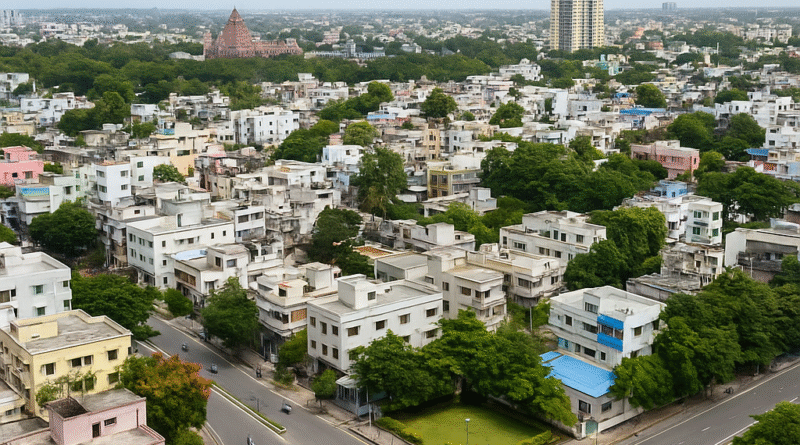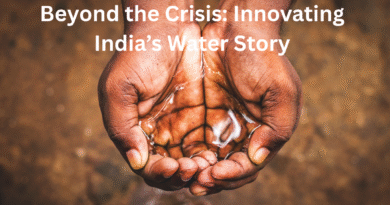Top 5 Indian Cities That Are Winning the Zero-Waste Race in 2025
India is no stranger to the waste crisis—with urbanization and population growth pushing the limits of municipal infrastructure. But in 2025, a new wave of leadership is turning the tide. Across the country, several cities are emerging as pioneers in sustainable waste management, leading the way with zero-waste goals, community engagement, and innovative recycling systems.
Here’s a closer look at five Indian cities that are Top Zero waste cities in India 2025, showing the rest of the nation (and the world) how it’s done.
1. 🌿 Indore: India’s Cleanest City, Five Years Running
Why Indore Stands Out
Indore has become synonymous with cleanliness and innovation. For five consecutive years, it’s been crowned India’s cleanest city in the Swachh Survekshan rankings—and 2025 is no exception.
Key Achievements in 2025
100% waste segregation at source in both residential and commercial zones.
A thriving biomethanation plant that processes over 500 tonnes of organic waste daily into fuel and compost.
Digital tracking systems for garbage collection vehicles using GPS and AI.
Community Involvement
What truly sets Indore apart is its community participation. Ward-wise competitions, school initiatives, and strict enforcement of segregation rules have created a zero-waste culture from the ground up.
Innovation Spotlight: In 2025, Indore introduced “Swachh Carts”—mobile segregation stations that help vendors and daily wage workers dispose of their waste responsibly.
2. 🌸 Mysuru: The Silent Performer with a Composting Culture
Why Mysuru Deserves the Spotlight
Often overshadowed by its more high-profile counterparts, Mysuru quietly continues to impress with its steady and sustainable waste management practices. In 2025, it ranks among the top tier for composting and public cleanliness.
Key Highlights
Over 60 decentralized composting units throughout the city.
A strict ban on single-use plastics with aggressive enforcement.
Door-to-door waste collection with high segregation compliance (~98%).
Citizen-Led Solutions
Mysuru’s zero-waste journey is heavily supported by resident welfare associations and NGOs. Neighborhood composting workshops, kitchen waste contests, and green points in residential buildings have helped reduce landfill dependence.
Innovation Spotlight: A city-run program called “Compost at Source” now rewards households with property tax rebates for consistent composting efforts.
3. 🌆 Pune: Tech-Driven Sustainability with a People-First Approach
Why Pune is Leading by Example
Pune combines grassroots action with digital innovation. Its model, often studied by other urban centers, showcases what happens when citizens, tech, and policy come together.
Achievements in 2025
Pune now segregates over 95% of its daily waste (~2,000 tonnes/day).
It operates one of India’s largest networks of waste picker cooperatives—SWaCH, which is fully integrated with the city’s municipal system.
Advanced waste-to-energy plants and automated Material Recovery Facilities (MRFs) are streamlining recycling.
Empowering Waste Workers
Pune’s success lies in empowering the informal sector. Thousands of waste pickers have been formally employed and trained, earning fair wages and dignified work.
Innovation Spotlight: A 2025 app called “Pune Recycles” allows users to schedule pick-ups, track their household waste metrics, and get rewarded for best practices.
4. 🌱 Surat: Fast-Growing and Smart with Its Waste
Why Surat Makes the Cut
One of the fastest-growing cities in Gujarat, Surat is showing that rapid development and sustainability can go hand in hand.
2025 Highlights
80%+ waste segregation thanks to aggressive public education and awareness campaigns.
Plastic waste upcycling centers across major zones.
Digitally monitored garbage routes via the city’s Smart City dashboard.
Urban Design for Waste Reduction
Surat has redesigned many public spaces with waste in mind—installing color-coded bins, composters in parks, and vending machines that accept recyclables in exchange for metro credits.
Innovation Spotlight: Surat’s municipal corporation introduced “Green Credits” in 2025—points that residents earn through good waste behavior and redeem for civic perks.
5. 🌻 Panaji (Goa): Small City, Big Zero-Waste Vision
Why Panaji Is a Model for Small Cities
Proof that size doesn’t matter when it comes to sustainability, Panaji has crafted one of the most efficient zero-waste models for small cities in India.
Key Developments in 2025
Panaji has achieved segregation at source in over 90% of households.
The city composts or recycles nearly 85% of its total waste, with only a fraction reaching landfills.
A tourism-sensitive waste policy ensures hotels, shacks, and visitors follow green norms.
Tourist Collaboration
Panaji’s success also comes from getting tourists on board. Clear signages, multilingual awareness drives, and partnerships with local businesses ensure consistent waste management even during peak seasons.
Innovation Spotlight: The city’s “Green Stay” badge—launched in 2025—is now awarded to hotels that meet zero-waste criteria, making it a badge of honor in Goa’s competitive tourism scene.
🌍 What These Cities Teach Us
India’s waste management challenge is enormous, but these five cities show that success is possible through:
Community engagement and behavioral change.
Strong municipal leadership and public-private partnerships.
Smart integration of technology and traditional waste practices.
Support and recognition of informal waste workers.
Incentives that drive sustainable behavior.
📈 The Road Ahead: Scaling Zero-Waste Nationwide
The real challenge now is scale. If cities like Indore, Pune, and Panaji can achieve such transformation, there’s hope for urban India as a whole. Key steps forward include:
Encouraging inter-city knowledge exchange.
Developing uniform national waste segregation standards.
Supporting green entrepreneurship and startups in the recycling and composting sectors.
Strengthening Extended Producer Responsibility (EPR) enforcement.
✨ Conclusion
The zero-waste movement in India is no longer an aspiration—it’s happening, and these five cities are leading the way in 2025. From small towns to urban giants, the key takeaway is clear: with the right mix of policy, people, and perseverance, a cleaner, greener India is entirely within reach.
If your city isn’t on this list yet, maybe it’s time to ask—what can we learn from these pioneers?




